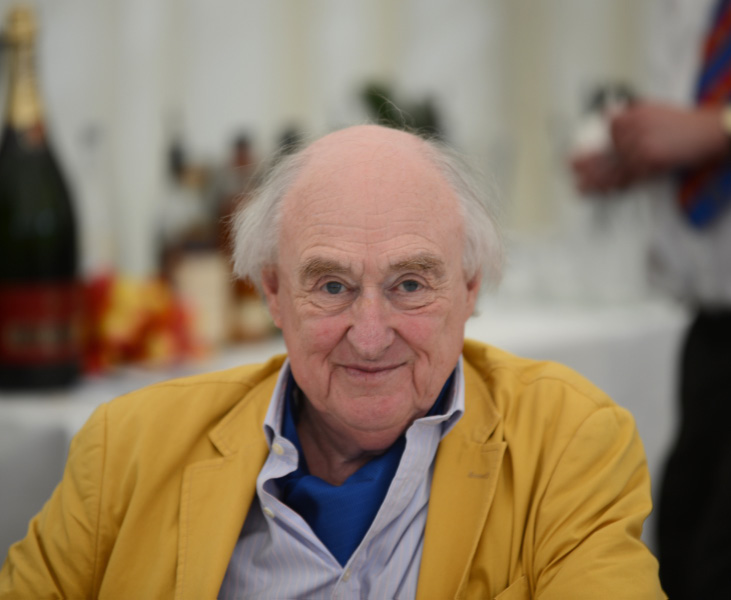 BBC News
BBC NewsBorrowing was £17.4bn last month, the second highest October figure since monthly records began in 1993.

The great commentator Henry Blofeld permits himself a moment of cricket nostalgia about his upbringing and the cricket of his youth
At my age, you’re permitted to look back a bit – to think of the circumstances of one’s family and the ways in which the world is changing. A bit of nostalgia never goes amiss when you’re in your eighties as I am.
As I do this, I realise it’s the small things which tell you rather a lot. I recall that my father was a great reader aloud which is something which happens less and less today – but if you don’t do that you miss the sound of words, and it’s that which can really connect you to a writer. My father not only had a beautiful voice but was extremely articulate and was really an academic I suppose. Wodehouse was one of those authors he introduced me to between the ages of 10 and 16 – and taking those books close to my heart has shaped my life. It’s dated, of course, but it’s very funny.
Sometimes Wodehouse seems to come near to my own life. There’s a book by Wodehouse Psmith in the City which describes an extraordinarily similar path to my early career. Wodehouse was in the City, and so was I – at a merchant bank called Robert Benson Lonsdale. I was there for three years; Wodehouse, of course, was quietly writing novels during his ordeal. But you could say that both of us were rather out of place and rather eager to leave.
I was very lucky to get into sports-writing. One of my heroes was John Arlott, and that led me into an interest in the batsman Jack Hobbs. Arlott adored Jack Hobbs – Hobbs could be said to be the greatest batsman ever produced. He played his first test match in Melbourne in 1907, and played his last test in 1930 – the sort of longevity we’ve seen recently in the fast bowler James Anderson.
Hobbs and Sutcliffe together were the most extraordinary pair – just as Anderson and Broad were. Hobbs and Sutcliffe even made runs on old-fashioned sticky wickets in Australia. He must have been the most supreme technician and was every bit as good in defence as Geoffrey Boycott – but in attack he lived in another world.
I sometimes hear it said that bowlers used to appeal in somewhat meeker way in the 1940s and 50s. One hears it said that bowlers, seeing a possibility of a leg before wicket decision, would politely enquire of umpires: “How was that?” But this is sometimes exaggerated. I think of lots of photographs of cricket in the old days and they all go up like mad. It might perhaps be that distance may have learned a certain enchantment. Do people really think there was an age in life when bowlers were uncorrupted? I fear not.
And distance lends lustre in lots of ways. WG Grace was an amazing cricketer, of course. In fact he was one of the greats – but not a great man. He comes quite badly out of the chapter in my book in 1882 when he ran out Sammy Jones when for all intents and purposes the ball was dead. That was entirely reprehensible and an appalling thing to do, and it was more appalling in 1882 than it would have been in 1982.
Of course, in that year, Botham ran out Geoffrey Boycott – but that was done deliberately as he was sent in in Christchurch. It took Botham two balls and was one of the funniest things I’ve ever seen. He pushed it to the offside and a lot of sashaying up the pitch, and “Yes-no-wait!” After he was run out, Boycott said: “Do you know what you’ve done? You’ve ruined my average!” I can’t remember what Botham said in return, but it was something very flowery and Boycott withdrew in a sulk.
I am sometimes asked about my surname, since it is used in the Bond novels, and I suspect Ian Fleming thought of it because of me. I knew Fleming a bit, but I didn’t exactly think much of him – and I don’t go to the Bond films to see my family name written in lights. Fleming and I were elected to Boodle’s on the same day; I had dinner with him and my first wife in Jamaica, when I was 22. I was quite young to be meeting such well-known people. I suppose that did make me more confident later on.
And confidence would come in handy in my career. In the early days of broadcasting, doing reports of county matches, stopwatch in hand – that was a very hairy business and to do that one had to have a certain confidence.
Sometimes one had to commentate in rather bizarre situations. I can also remember sitting on a sack of sawdust in the groundman’s office at Sydney at the back of the Noble stand without any windows at all, doing a report for Sport on Four. I can also recall doing reporting on a total eclipse of the sun from Bombay – not to mention reporting on the riots in Lahore during the 1977 Test Match. It was nothing if not varied.
I do wonder about the future of the sport. I can see the point of One Day Cricket in the same way I can see the point of instant coffee – which I find quite undrinkable. One Day Cricket was introduced as a financial palliative, and it’s not ideal in my view. Perhaps one day we’ll have the ultimate cricket match where each side will have one ball, bowled in front of 100,000 people. I wonder what WG Grace and John Arlott would make of that – and PG Wodehouse for that matter.